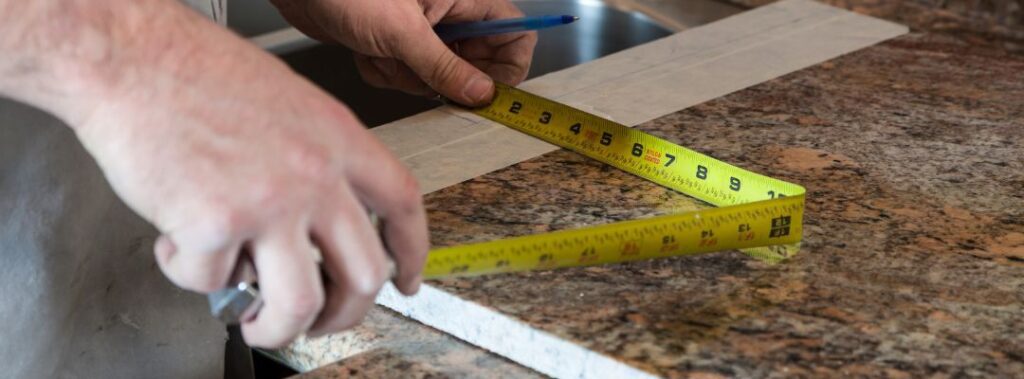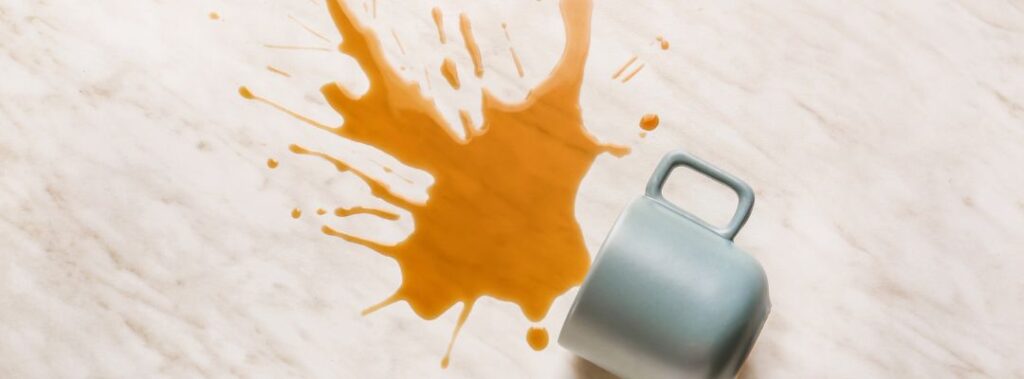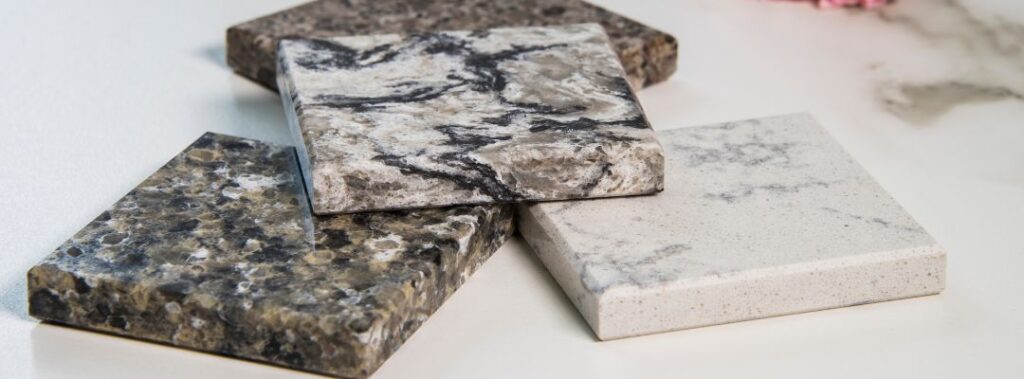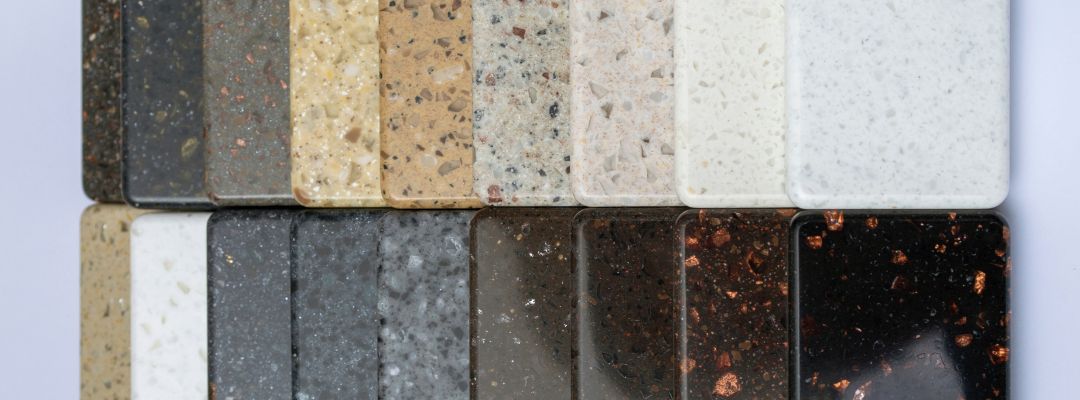Granite countertops are prized for their durability and timeless beauty, but even the toughest surfaces can experience wear and tear over time. Whether it’s a small chip, crack, or stain, knowing how to repair granite countertops like a pro can help you maintain their pristine appearance for years to come.

Common Types of Damage
Stone countertops are renowned for their durability and timeless beauty, but even the toughest surfaces can be susceptible to damage over time. From minor scratches to more significant cracks, understanding the common types of damage to stone counters can help you identify issues early and take the necessary steps to address them. In this blog, we’ll explore some of the most common types of damage to stone countertops and provide solutions to keep your surfaces looking their best.
Scratches
One of the most common types of damage to stone countertops is scratches. While natural stone like granite and quartzite is incredibly hard and resistant to scratching, it’s not entirely impervious to damage. Sharp knives, metal utensils, and abrasive cleaners can all leave scratches on the surface of stone countertops over time. To prevent scratches, always use cutting boards and trivets, and avoid dragging heavy or sharp objects across the surface. For minor scratches, you can use a polishing compound or diamond polishing pad to buff them out. Deeper scratches may require professional refinishing to restore the surface to its original condition.
Chips and Cracks
Chips and cracks are another common type of damage to stone countertops, especially in high-traffic areas like the kitchen. These imperfections can occur from heavy impacts, dropped objects, or sudden changes in temperature. While minor chips and hairline cracks may be repairable using epoxy resin or stone fillers, larger cracks may require professional repair or replacement of the affected area. To prevent chips and cracks, be mindful of heavy objects on the countertop and avoid placing hot pots or pans directly on the surface without a trivet.
Stains
Stains are a frequent concern with stone countertops, particularly in areas prone to spills and splashes like the kitchen and bathroom. Organic stains from food, wine, and oil-based substances can penetrate the porous surface of natural stone, leaving behind unsightly marks. To prevent stains, wipe up spills promptly and avoid using acidic or abrasive cleaners that can damage the surface. For stubborn stains, you can try using a poultice made from baking soda and water or a commercial stone cleaner designed to lift stains from the surface.
Etching
Etching is a chemical reaction that occurs when acidic substances like lemon juice, vinegar, or household cleaners come into contact with certain types of stone, such as marble and limestone. This reaction can leave behind dull spots or marks on the surface of the countertop, detracting from its natural beauty. To prevent etching, avoid using acidic cleaners or harsh chemicals on your stone countertops, and always use cutting boards and coasters to protect the surface from spills and scratches.
While stone countertops are durable and resilient, they are not immune to damage. By understanding the common types of damage that can occur and taking proactive steps to prevent them, you can keep your stone countertops looking their best for years to come. From scratches and chips to stains and etching, knowing how to identify and address damage early can help you maintain the beauty and integrity of your stone countertops for generations to come.

Mastering Granite Countertop Repairs
In this comprehensive guide, we’ll walk you through the steps to tackle common granite countertop repairs with confidence and skill.
Assessing the Damage
Before diving into repairs, it’s essential to assess the extent of the damage to your granite countertops. Inspect the surface carefully for chips, cracks, scratches, or stains, noting the size and location of each imperfection. This will help you determine the appropriate repair method and gather the necessary materials and tools.
Repairing Chips and Cracks
For small chips and hairline cracks in your granite countertops, epoxy resin is your best friend. Start by cleaning the damaged area with a mild detergent and water, then dry it thoroughly with a clean cloth. Mix the epoxy resin according to the manufacturer’s instructions, ensuring it matches the color of your granite as closely as possible. Apply the epoxy to the damaged area using a small brush or spatula, then smooth it out with a razor blade or putty knife. Once the epoxy has cured, sand the repaired area lightly to blend it with the surrounding surface, then polish it to a smooth finish.
Removing Stains
Stubborn stains on granite countertops can be a challenge to remove, but with the right techniques, you can restore your surfaces to their original beauty. For organic stains like coffee, wine, or grease, create a paste using baking soda and water and apply it to the stained area. Let the paste sit for several hours or overnight, then rinse it off with water and dry the surface thoroughly. For oil-based stains, try using a poultice made from acetone and powdered whiting or talc. Apply the poultice to the stain and cover it with plastic wrap, then let it sit for 24 to 48 hours before removing it and cleaning the surface.
Preventing Future Damage
Once you’ve repaired your granite countertops, it’s essential to take steps to prevent future damage and maintain their beauty for years to come. Use cutting boards, trivets, and coasters to protect the surface from scratches, heat, and moisture. Clean up spills promptly to prevent staining, and avoid using abrasive cleaners or harsh chemicals that can damage the surface. Periodically reseal your granite countertops to maintain their protective barrier and keep them looking their best.
With the right tools, materials, and techniques, repairing granite countertops can be a straightforward and rewarding task. By assessing the damage, choosing the appropriate repair method, and taking steps to prevent future damage, you can keep your granite countertops looking like new for years to come. So roll up your sleeves, channel your inner pro, and tackle those repairs with confidence!

Repair vs Replace
Deciding whether to repair or replace your countertops depends on several factors, including the extent of the damage, the overall condition of the countertops, your budget, and your long-term goals for your space.
If your current countertops no longer meet your needs or lifestyle, it may be time to consider replacing them with options that offer improved functionality and usability. For example, if you need more counter space, want to add features like a built-in sink or cooktop, or prefer a different surface material for specific tasks, replacing your countertops can help you achieve your goals.
Consider the overall condition of your countertops, including their age, maintenance history, and general wear and tear. If your countertops are nearing the end of their lifespan, have been extensively repaired in the past, or are showing signs of deterioration, replacing them may be a wise investment in the long-term value and enjoyment of your home.
Ultimately, the decision to repair or replace your countertops depends on your individual circumstances and preferences. If you’re unsure whether it’s time to replace your countertops, consult Superior Granite who can assess the condition of your existing countertops and help you explore your options.





